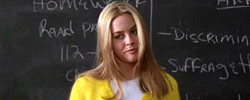Reviews
Sharon Maguire
UK , 2001
Credits
Review by Beth Gilligan
Posted on 04 July 2006
Source Miramax DVD
Categories Chick Flicks
Given the remarkable success of chick flicks during the 1990s, the so-called “chick lit” phenomenon can hardly be considered a surprise. While Oprah earnestly entreated viewers to pick up works by Toni Morrison and William Faulkner, many women instead opted for the works of literary luminaries such as Sophie Kinsella (author of the Shopaholic series), Plum Sykes (Bergdorf Blondes), and of course, the woman who started it all, Helen Fielding. Originally a series of newspaper columns published in the UK, Fielding’s Bridget Jones’s Diary chronicles the weight, cigarette and alcohol intake, and the romantic travails of its title character, a thirty-something Londoner stuck in a thankless publishing job.
At the beginning of the novel Bridget plunges headfirst into an affair with her boss, the caddish Daniel Cleaver, only to suffer heartbreak and humiliation shortly thereafter. Surrounded by a supportive group of fellow “singletons” (including a gay male best friend, an archetype that has become a staple of romantic comedies and chick lit from the 1990s onwards), she picks herself up off her feet and finds herself increasingly attracted to Mark Darcy, a human rights lawyer she initially found smug and repellent. Much to her surprise, he appears to return the sentiment.
At the same time as Bridget was drinking too much and going after the wrong sort of men, Sex and the City, which explored many similar themes (though arguably with much greater depth), was enjoying enormous worldwide success. Hence, it seems only natural that a big screen version of Bridget Jones’s Diary would follow, and it did, in 2001, to tremendous box office (and some critical) success. Most of the press surrounding the film centered around lead actress Renee Zellweger’s weight gain for the role, all 20 pounds of which (and perhaps then some) had been winnowed away by the time Zellweger was making rounds to promote it. While many articles and reviews of the film touted Bridget’s “everywoman” quality, the accompanying press hysteria surrounding Zellweger’s rapid weight gain and loss emphasized the undesirability of those extra pounds.
In addition to playing up Zellweger’s full figure, the film version of Bridget Jones’s Diary highlights Fielding’s rather cursory allusions to Jane Austen’s Pride and Prejudice. In a bit of stunt casting, Colin Firth, who became a household name in Britain playing Mr. Darcy in the 1995 BBC miniseries version of the novel (which Fielding’s Bridget watches obsessively), plays Mark Darcy, while Hugh Grant’s Daniel Cleaver is clearly meant as a stand-in for the scoundrel Wickham. The latter role marked a departure for Grant, who (along with John Cusack), is one of the few male actors to headline chick flicks on a regular basis. Grant became a star after the international success of Four Weddings and a Funeral, in which he played a bumbling, ineffectual young man smitten with a sexually ravenous American woman. Although his public image was slightly tarnished the following year after his arrest for soliciting a prostitute, he continued playing a variation on his Four Weddings role up until the release of Bridget Jones’s Diary. Daniel Cleaver is, in many ways, the perfect synthesis of his onscreen and public personas: witty, erudite, and effortlessly charming, but also a sexual predator unable to commit to a relationship.
If Grant’s earlier roles hark back to the screwball comedies of 1930s and 1940s, in which male stars such as Cary Grant, Henry Fonda, and Jimmy Stewart regularly took spills and found themselves besotted and befuddled by a woman, then his Cleaver is indicative of a contemporary trend in romantic comedies; while the female characters are prone to pratfalls, the foolishness of the male characters is played down. Throughout the film, Bridget is subject to humiliation after humiliation, many of which occur after she’s had too much to drink, and some of which use her weight to comic effect. Darcy, on the other hand, is shown to be positively beatific, while Cleaver, for all his philandering, is rendered as lonely man who would desperately love to commit were it not against his nature.
At the end of the film, Darcy comes to love Bridget “just as she is,” a ringing endorsement were it not for the fact that she is a desperate, insecure, chain-smoking alcoholic whose terminally bad judgment is overcome only after being thoroughly humiliated by Cleaver. If Bridget is “everywoman,” then what does that say about the rest of us?
More Chick Flicks
-

The Truth About Cats & Dogs
1996 -

Say Anything
1989 -

Gas Food Lodging
1992 -

Pretty Woman
1990 -

Walking and Talking
1996 -

Mean Girls
2004 -

Fried Green Tomatoes
1991 -

Private Benjamin
1980 -

Clueless
1995 -

Erin Brockovich
2000 -

The Bridges of Madison County
1995 -

Bridget Jones’s Diary
2001 -

Working Girl
1988 -

Bend It Like Beckham
2002 -

Bring It On
2000 -

Ghost
1990 -

Truly Madly Deeply
1991 -

The Last of the Mohicans
1992
We don’t do comments anymore, but you may contact us here or find us on Twitter or Facebook.



